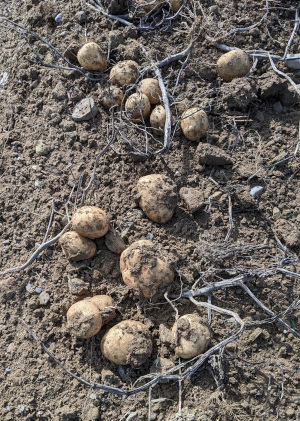
Potato Relevance
This is the last post about potatoes for now, I promise. However, it is worth saying that not only do potatoes teach an important lesson on the acceptance of novel foods, but also they can be consumed by black soldier flies. This opens a possibility to recycle potato waste by feeding them to maggots. However, tubers need to be either cooked or shredded. Otherwise, larvae cannot consume them. This is not surprising because tubers are living organisms, while black soldier flies are scavengers.
Moyet, M., Alyokhin, A., Buzza, A. and Perkins, L.B., 2023. Black Soldier Fly Larvae as a Recycling Agent for Cull Potatoes. American Journal of Potato Research, https://doi.org/10.1007/s12230-023-09930-6
The accumulation of cull potato piles is a concern because they take up space and harbor potato-associated pathogens. Black soldier fly, Hermetia illucens, larvae are an increasingly popular agent for converting organic wastes into ingredients for animal feeds. In this investigation, their ability to process cull potato waste was assessed. Potato tubers were suitable for larval development, but only following their disintegration through thermal or mechanical means. Optimal bioconversion was observed when potato substrate was provided at a rate of 1 g per larva. The presence of ground turkey meat and sawdust was generally beneficial to larval development and biomass accumulation. The presence of potato foliage in diet showed no negative effects on larval development and there was no glycoalkaloid bioaccumulation in larval tissues. Evidence from this investigation suggests that culled potato waste may be recycled using black soldier fly larvae.
